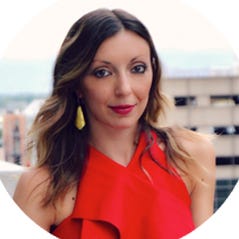CircleUp: The best new way to finance your natural brand
Does your brand have what it takes to be the next CircleUp success story? CircleUp's founder, brands and investors discuss why natural and organic companies are finding their niche, and leaving their mark, on this new crowdfunding site.

California-based natural kids personal care company Episencial was doing everything right.
Its founder Kim Walls was meeting parents’ demand for nontoxic kids bath and body products. The well-branded, carefully formulated line of “skin care as health care” was growing steadily and hitting milestones, finding success not only in natural retailers but also in hospitals—a unique distribution model that can establish credibility and gain a loyal following.
There was just one problem, a problem that many young companies in the natural and organic products industry face: unmanageable growth.
“Everything was going great except for the things that make it hard to fund a young consumer-products company,” Walls said. “Banks won’t invest in a company like us because you have to have a different cash-flow profile.”
As Episencial’s inventory demands were about to exceed the company’s ability to keep up, Walls found opportunity with a new crowdfunding website: CircleUp.
Crowdfunding: the next generation
With years of consumer-product investment under his belt, CircleUp Co-Founder Ryan Caldbeck noticed the need for young natural brands to earn capital. The potential solution? Crowdfunding—an investment model that garners capital from various individuals, typically through a digital platform.
“There are hundreds of private equity firms that will invest in consumer businesses but almost none that will invest in smaller consumer companies with less than $10 million or $15 million in revenue. I saw a lot of phenomenal national brands that still struggled to raise money,” said Caldbeck.
Early crowdfunding sites have faced criticism for their risky nature, but CircleUp—launched in April—has quieted these concerns with a community of accredited investors that make the site a standout in this non-traditional investment space. Caldbeck and his team carefully screen each company before allowing it on the site; once the company starts a round on CircleUp, it sells shares exclusively to qualified investors.
Its high level of professionalism isn’t the only reason CircleUp stands out. Focusing on bringing opportunities to natural and organic brands also is unique in the crowdfunding space that is largely dominated by tech companies.
“CircleUp is coming in at a time in a company’s life cycle that is critical," said Walls. "Especially in the natural products industry, there’s a lower awareness of how bigger businesses generate cash. People operate in the naturals industry from more of a core values place.”
Why natural companies are the right fit for CircleUp
Caldbeck said it’s “no coincidence” that of the hundreds of companies that reached out to CircleUp, his team has found the most value in natural brands, which have a distinctively passionate following that investors find appealing.
“We worked hard to build an ecosystem, a community that would be valuable for the companies that raise money through us. The biggest criterion is whether or not they will add value to the ecosystem,” said Caldbeck.
Kevin Tom, who invested in Episencial through CircleUp, saw the site as a much-needed way for small- to medium-sized natural companies to earn capital that wouldn’t come through banks or other investment firms. He also saw it as a chance to round out his personal investment portfolio by entering the thriving natural and organic space.
“These are brands and companies that I’ve seen at Whole Foods and Trader Joe’s, and it’s really compelling for me as a personal investor to have access to those types of opportunities,” he said.
Investing in a natural kids personal care company in particular caught Tom’s attention. The category was the fastest growing personal care category in 2010 and caters to the 40 percent of young parents who look for “all-natural” bath and body care products for their children, according to Chicago-based market research firm Mintel.
“I’m in my early 30s and have a lot of friends going into that stage of life where they’re having kids. Aside from eating certain kinds of foods, [natural personal care] is the one thing that they’re very conscious of,” said Tom.
With support from investors such as Tom, Walls noticed that on CircleUp, it wasn’t just her brand that her mission was really embraced along with her brand. And the business relationships that resulted between her and investors not only saved Walls “hundreds of hours of time,” but also have continued to develop after Episencial’s round closed last month.
“I’ve been really excited about the opportunity because I can track the performance of the company," Tom said. "I have been keeping in touch with Kim, helping her out with bank financing questions that she’s had. It’s a great platform both for entrepreneurs such as Kim and investors such as myself.”
About the Author
You May Also Like





